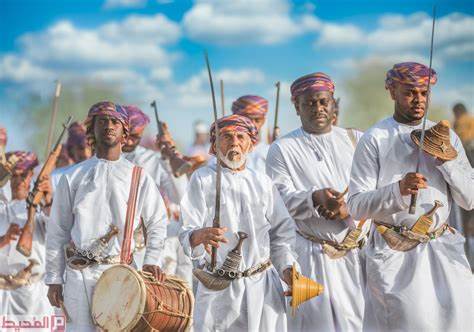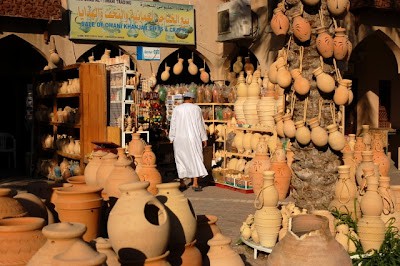Islamic culture plays a significant role in the everyday lives of Omani people. As a country located on the Arabian Peninsula, Oman has a rich history and deep roots in Islamic traditions. Islam is the official religion of Oman, and its influence can be seen in everything from daily prayer routines to the country’s stunning architecture.
Islamic beliefs and practices, including prayer, fasting, and charity, are central to Omani culture. The country’s Grand Mosque in Muscat is a beautiful example of Islamic architecture and art, and it serves as a popular destination for both locals and tourists. Traditional Islamic celebrations and events, such as Ramadan and Hajj, are also widely observed in Oman.
When traveling to Oman, it’s important to respect Islamic customs and etiquette. This includes dressing modestly, avoiding public displays of affection, and refraining from eating or drinking in public during Ramadan. Visitors can also learn about and experience Islamic culture in Oman through educational programs and interactions with locals.
Overview of Islamic Culture in Oman
Oman is a predominantly Islamic country, with over 85% of the population being followers of Islam. The country’s official religion is Ibadhism Islam, but a significant minority practices Sunni. Islam plays a significant role in Omani culture and society, and visitors to the country can expect to encounter many aspects of Islamic culture during their stay.
Religious Practices
Muslims in Oman follow the five pillars of Islam, which include prayer, fasting, charity, pilgrimage, and the declaration of faith. Prayer is an essential part of daily life in Oman, with mosques being found in almost every neighborhood. During the holy month of Ramadan, Muslims fast from dawn until dusk, and the country comes alive with special events and celebrations.
Cuisine and Dress
Omani cuisine is influenced by Islamic dietary laws, with pork being forbidden and halal meat being the norm. Spices play a significant role in Omani cuisine, with dishes featuring a blend of flavors and aromas. Traditional Omani dress includes the dishdasha for men and the abaya for women. Men also wear the assa, a traditional curved dagger, and the khanjar, a ceremonial dagger worn on special occasions.
Conclusion
Oman is a country with a rich Islamic heritage, and visitors can expect to encounter many aspects of Islamic culture during their stay. By respecting Islamic customs and etiquette, travelers can experience the country’s unique culture and learn more about this fascinating religion.
Arts and Literature
Oman’s rich Islamic heritage has greatly influenced its arts and literature. The country has a vibrant cultural scene that showcases traditional and modern art forms. This section will explore some of the most notable arts and literature in Oman.
Music and Dance
Music and dance are integral parts of Omani culture. Traditional Omani music is characterized by the use of the Oud, a stringed instrument similar to a lute. The music is often accompanied by traditional dances, such as the Razha, which is performed by men and women in colorful costumes.

Modern music has also gained popularity in Oman, with many young musicians blending traditional Omani music with modern genres. The annual Muscat Festival is a great opportunity to experience Omani music and dance.
Handicrafts
Oman is known for its intricate handicrafts, which are often made using traditional techniques passed down through generations. The country’s handicrafts include pottery, weaving, and metalwork. The silver jewelry made in Oman is particularly renowned for its intricate designs.
Visitors to Oman can purchase handicrafts at local markets, such as the Muttrah Souq in Muscat. Many of the handicrafts make great souvenirs and gifts.

Literature
Oman has a rich literary tradition, with many works written in Arabic and Persian. The country’s literature includes poetry, prose, and religious texts. Many famous poets and writers have hailed from Oman, including the renowned poet Al-Shanfara.
Oman’s literature has been greatly influenced by Islamic teachings, with many works exploring themes of faith, morality, and spirituality. Visitors to Oman can learn more about the country’s literature by visiting local libraries and bookstores.
In conclusion, Oman’s arts and literature offer a fascinating glimpse into the country’s Islamic heritage. Visitors to Oman should take the time to explore the country’s cultural scene and learn more about its rich artistic traditions.
Gender Roles and Marriages
In Islamic culture, gender roles are clearly defined and strictly adhered to. Men are expected to be the primary providers for their families, while women are expected to take care of the household and children. However, this does not mean that women are not allowed to work or pursue higher education. In fact, many Omani women have successful careers and hold high-ranking government positions.
Marriage is highly valued in Omani culture, and it is considered a sacred bond between a man and a woman. It is also seen as a way to continue the family lineage and to maintain social status. Traditionally, marriages were arranged by the families of the bride and groom, but nowadays, it is becoming more common for couples to choose their own partners.
In Islam, marriage is viewed as a partnership based on mutual respect and love. The husband is responsible for providing for his family, while the wife is responsible for managing the household and raising the children. Both partners are expected to support and care for each other, and to work together to maintain a strong and healthy relationship.
In Omani culture, weddings are elaborate and festive affairs that can last for several days. They typically involve traditional dances, music, and food, and are attended by large numbers of family and friends. The bride and groom are often dressed in traditional Omani clothing, and the wedding ceremony is conducted by an Islamic cleric.
Overall, gender roles and marriages in Oman are deeply rooted in Islamic culture and traditions. While there are some variations in how these roles are interpreted and practiced, they remain an important part of Omani society and identity.
Tribal Culture and Identity
Tribal culture plays a significant role in the identity and social structure of Omani society. Many Omanis identify with their tribal roots and maintain close ties to their clans and extended families. Tribal affiliations are often passed down through generations and are a source of pride and honor for many Omanis.
Tribal leaders, known as sheikhs, hold significant influence in their communities and are respected for their wisdom and leadership. They often act as mediators in disputes and play a crucial role in maintaining social harmony.
Tribal customs and traditions are deeply ingrained in Omani society and are reflected in many aspects of daily life, from dress and cuisine to music and dance. Traditional Omani clothing, for example, is often made from locally sourced materials and features intricate embroidery and patterns that reflect tribal identities.
Tribal culture also plays a significant role in Omani celebrations and events. Many festivals and gatherings are organized by tribes and feature traditional music, dance, and food. These events provide an opportunity for Omanis to celebrate their cultural heritage and strengthen their sense of community.
Overall, tribal culture and identity are integral parts of Omani society and play a significant role in shaping the country’s unique cultural landscape. Visitors to Oman can learn more about tribal culture and customs by interacting with locals and participating in traditional events and festivals.
Religious Diversity in Oman
Oman is a predominantly Muslim country, with over 85% of the population practicing the Ibadi denomination of Islam. However, there is also a significant presence of Sunni Muslims, as well as a small community of Shia Muslims.
Shia Muslims in Oman
Shia Muslims make up a minority of the population in Oman, estimated to be around 5-10%. They are mostly concentrated in the northern regions of the country, particularly in the cities of Sohar and Muscat. The Shia community in Oman is known for their unique cultural practices, such as the annual Ashura processions, which involve mourning the death of Hussein, the grandson of Prophet Muhammad.
Christians in Oman
Christians make up a small minority of the population in Oman, estimated to be around 2-3%. Most Christians in Oman are expatriates, who have come to the country for work or other reasons. There are several churches in Oman, including the Catholic Church, the Protestant Church, and the Orthodox Church. The government of Oman has been known to be tolerant of Christians, and there have been no reports of religious persecution.
Overall, Oman is a country that values religious diversity and tolerance. While Islam is the dominant religion, the government has made efforts to promote religious freedom and respect for other faiths. Visitors to Oman are encouraged to be respectful of local customs and traditions, and to learn about the country’s rich cultural heritage.
Conclusion
In conclusion, Islamic culture plays a significant role in Omani society. The country’s long-standing tradition of religious tolerance has resulted in a unique blend of Islamic and Omani culture. Visitors to Oman have the opportunity to experience this rich culture firsthand by participating in traditional Islamic celebrations and events such as Ramadan and Hajj. They can also explore the country’s Islamic architecture and art, including the Grand Mosque in Muscat.
To respect Islamic customs and etiquette while traveling in Oman, visitors should dress modestly, especially when visiting mosques or other religious sites. They should also be mindful of their behavior, such as not eating, drinking, or smoking in public during Ramadan.
For those interested in learning more about Islamic culture in Oman, educational programs and interactions with locals can provide valuable insights. Visitors can attend lectures, workshops, and cultural events to gain a deeper understanding of the country’s Islamic heritage. By embracing Islamic culture in Oman, visitors can gain a greater appreciation for the country’s rich history and traditions.
